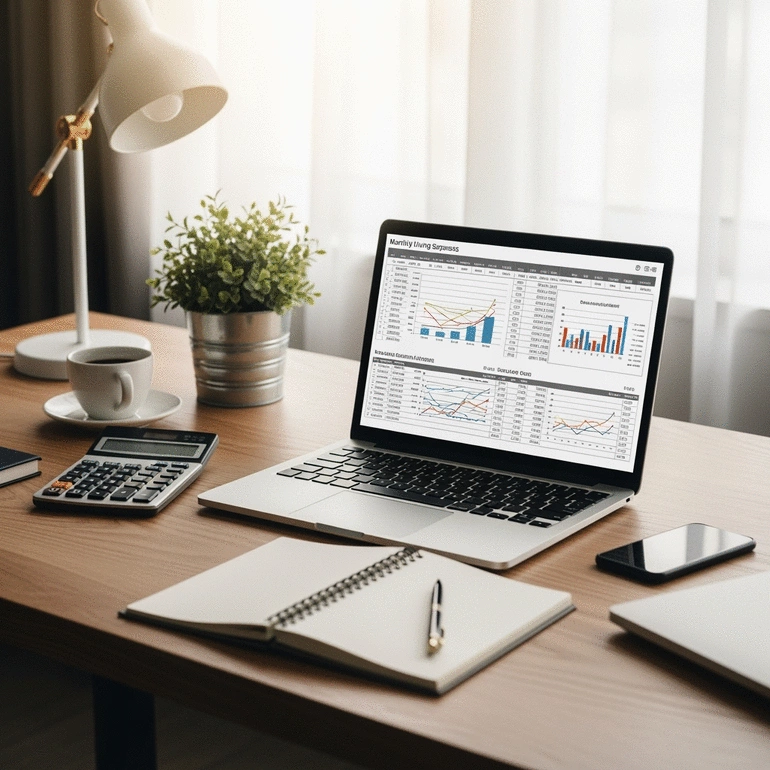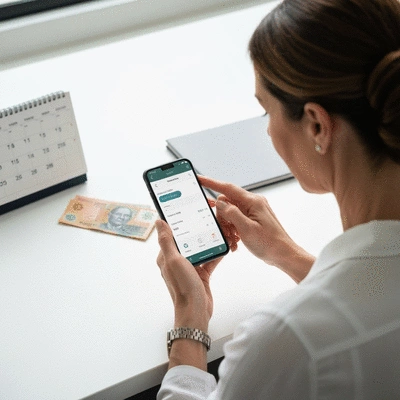
Are you ready to take control of your finances while studying in Australia? Understanding your monthly living expenses is the first step towards effective budgeting and a smoother transition to your new environment. Let’s explore the key insights you’ll gain!
This visual breaks down the key components of monthly living expenses in Australia, categorizing them into fixed and variable costs, crucial for effective budgeting for international students.
These costs are typically consistent each month, allowing for easier budgeting and financial planning.
These expenses can change month-to-month, requiring careful tracking and adjustments.
As an education consultant at LearnRoute Australia, I often get questions about monthly living expenses for international students in Australia. Understanding these costs is essential for budgeting effectively and ensuring a smooth transition to your new life. This section will break down what monthly living expenses are and why they are so important for your financial planning.
Monthly living expenses refer to the regular costs you incur while living in Australia, such as rent, food, transportation, and utilities. Being aware of these expenses helps you make informed decisions about your budget and lifestyle. Are you curious about how to manage these costs? Let’s dive in! You can also find more detailed information on living costs for international students in Australia.
It's crucial to grasp what constitutes monthly living expenses and their significance in your financial journey. These expenses encompass everything from essential needs to leisure activities, which directly affect your day-to-day living.

Understanding these categories will empower you to create a realistic budget. Remember, managing your expenses is not just about cutting costs—it's about finding a balance that works for you!
The cost of living in Australia can vary widely based on location and lifestyle. Let's explore the key components that contribute to this cost:
Being aware of these components can help you strategize your finances effectively. Have you considered how each factor might impact your overall budget? For more budgeting support, check out these budgeting tips for Australian students.
Understanding the difference between fixed and variable expenses can be a game changer when budgeting. Fixed expenses are consistent and predictable, like rent or utility bills. On the other hand, variable expenses can fluctuate, such as groceries and entertainment. Let’s take a closer look:
By identifying which expenses fall into each category, you can better manage your budget and anticipate changes. This awareness is especially helpful for international students navigating financial responsibilities while adjusting to life in Australia.
To maximize your savings while studying in Australia, consider setting up a dedicated savings account. Many banks offer accounts with no monthly fees and higher interest rates for students. This way, you can easily set aside a portion of your income for emergencies or special occasions while keeping track of your spending more effectively!
A: The main components include housing (rent/mortgage), food (groceries/dining out), transportation (public transport/vehicle costs), and utilities (electricity, gas, water).
A: Major cities like Sydney and Melbourne generally have higher living costs compared to regional areas. Accommodation and transportation costs are typically more expensive in urban centers.
A: Fixed expenses are consistent monthly costs like rent, insurance premiums, and subscriptions. Variable expenses fluctuate month-to-month and include groceries, entertainment, and transportation fares.
A: Effective techniques include regularly reviewing your budget, prioritizing essential expenses, and utilizing budgeting tools or apps to track your spending.
A: You can cut costs by shopping during sales, meal prepping, opting for public transport or walking, and combining utility plans for better rates.
Managing your monthly living expenses in Australia can initially seem overwhelming, but with the right strategies, it becomes much more manageable! Here’s a quick recap of what we covered regarding essential monthly expenses and effective budgeting techniques.
First, understanding the breakdown of your costs is crucial. We discussed major categories including accommodation, food, transportation, and utilities. Each of these areas has distinct costs that can fluctuate depending on your lifestyle and choices. Remember to consistently monitor your spending to stay within your budget!
To effectively manage your finances, consider these key components:
Utilizing these strategies can provide you with a solid foundation to manage your finances effectively while studying in Australia. I always encourage students to create a budgeting plan that fits their unique situation. Everyone's financial journey is different!
Staying organized is essential. Here are some final tips to keep your finances in check:

With these tips, you'll be better equipped to navigate your financial landscape while studying abroad! Remember, every little bit helps when it comes to managing your expenses. For specific academic advice and resources, you might also find our study tips for international students helpful.
Finding ways to cut costs can significantly improve your cash flow. Here are some strategies to consider:
Implementing these cost-cutting strategies can lead to a smoother financial experience in Australia. Always keep your goals in sight—whether it’s saving for a trip or managing day-to-day living expenses. We're here to help you along the way!
Now that you have a grasp on budgeting and expense management, it’s time to take action! The first step is to utilize the tools and resources available to you.
At LearnRoute Australia, we provide an interactive budgeting tool designed specifically for international students. This tool can help you track your expenses and make informed financial decisions. Download it today and take charge of your finances!
Don’t navigate this journey alone! Join our community of international students at LearnRoute Australia. Here, you’ll find support, share experiences, and gather tips from others who understand the unique challenges you face. Together, we can create a successful path for your studies and life in Australia!
Here is a quick recap of the important points discussed in the article:
LearnRoute Australia is dedicated to empowering international students in their academic journey down under. We provide comprehensive guidance on universities, courses, and visa applications, ensuring a confident transition to studying in Australia.
